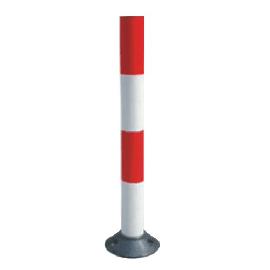 Recently, Microsoft Asia Pacific Global Technical Support Center and the Wuxi Municipal Government have signed a strategic cooperation agreement, with an investment of RMB 300 million over the next three years to establish the Microsoft Wuxi Technical Support Center. This collaboration will extend beyond technical support, covering areas such as software development, smart city initiatives, cloud computing, and intellectual property protection. Wuxi, known as a leading hub for the Internet of Things (IoT), has been at the forefront of IoT development in China, offering strong policy support and a robust industrial ecosystem.
As a national pilot zone for IoT innovation, Wuxi's Sensor Network Demonstration Area has drawn significant attention from the State Council, which envisions it as a global model for sensor network development. Jiangsu Province also sees IoT as one of its key emerging industries, aiming for a market scale of 100 billion yuan by 2012 and 250 billion yuan by 2015. The region is home to 32 major research institutions focused on networked polymer technology, and the Wuxi Institute of IoT has led or participated in the development of nine international and twelve national IoT standards. Over 608 companies have achieved industrialization, and more than 100,000 people are employed in the sector.
With a market size of approximately 118.1 billion yuan in security, power, and transportation sectors alone, IoT is driving rapid growth across multiple industries. According to Ye Tianchun, director of the China IoT Research and Development Center, the IoT market reached 263.26 billion yuan in 2011, growing by 42.5% year-on-year. In 2012, it was expected to reach 365 billion yuan, showing continued momentum.
The security industry has become a key player in the IoT landscape, evolving from basic government and enterprise protection to comprehensive safety solutions for homes, schools, and communities. Digitalization, intelligence, and networking have transformed the sector, making IoT an essential part of modern security systems.
Government policies have further accelerated IoT development, with several key plans released this year, including the "12th Five-Year IoT Development Plan" and the "Wuxi National Sensor Network Innovation Demonstration Zone Development Outline (2012–2020)." These initiatives have spurred the growth of smart homes, smart grids, and intelligent logistics. With ongoing technological advancements and increasing demand, the IoT industry continues to expand, promising a bright future for connected technologies.
Recently, Microsoft Asia Pacific Global Technical Support Center and the Wuxi Municipal Government have signed a strategic cooperation agreement, with an investment of RMB 300 million over the next three years to establish the Microsoft Wuxi Technical Support Center. This collaboration will extend beyond technical support, covering areas such as software development, smart city initiatives, cloud computing, and intellectual property protection. Wuxi, known as a leading hub for the Internet of Things (IoT), has been at the forefront of IoT development in China, offering strong policy support and a robust industrial ecosystem.
As a national pilot zone for IoT innovation, Wuxi's Sensor Network Demonstration Area has drawn significant attention from the State Council, which envisions it as a global model for sensor network development. Jiangsu Province also sees IoT as one of its key emerging industries, aiming for a market scale of 100 billion yuan by 2012 and 250 billion yuan by 2015. The region is home to 32 major research institutions focused on networked polymer technology, and the Wuxi Institute of IoT has led or participated in the development of nine international and twelve national IoT standards. Over 608 companies have achieved industrialization, and more than 100,000 people are employed in the sector.
With a market size of approximately 118.1 billion yuan in security, power, and transportation sectors alone, IoT is driving rapid growth across multiple industries. According to Ye Tianchun, director of the China IoT Research and Development Center, the IoT market reached 263.26 billion yuan in 2011, growing by 42.5% year-on-year. In 2012, it was expected to reach 365 billion yuan, showing continued momentum.
The security industry has become a key player in the IoT landscape, evolving from basic government and enterprise protection to comprehensive safety solutions for homes, schools, and communities. Digitalization, intelligence, and networking have transformed the sector, making IoT an essential part of modern security systems.
Government policies have further accelerated IoT development, with several key plans released this year, including the "12th Five-Year IoT Development Plan" and the "Wuxi National Sensor Network Innovation Demonstration Zone Development Outline (2012–2020)." These initiatives have spurred the growth of smart homes, smart grids, and intelligent logistics. With ongoing technological advancements and increasing demand, the IoT industry continues to expand, promising a bright future for connected technologies.Features of Abrasive Fiber Discs include:
High Performance: Abrasive Fiber Discs use geometrically shaped ceramic grains to achieve efficient cutting volume and reduce production costs, with more than twice the cutting volume of traditional ceramic abrasives, improving productivity. In addition, its ultra-stable size and vulcanized fiber substrate meet safety requirements, while the ultra-coating enables a cold grinding process and ultra-long service life1.
Durability and Ease of Use: Abrasive Fiber Polishing Discs use 3M precision-shaped abrasives, designed for fast carbon steel cutting, with excellent cutting rate, durability and ease of use. Its hard fiber backing and strong resin bond provide durability and tear resistance, making Abrasive Fiber Discs a significant improvement in performance over traditional fiber sanding discs2.
Optimized Process: It can further improve polishing results, simplify processes, reduce energy consumption, save costs, and extend the service life of polishing discs3.
Fiber Disc,Fiber Wheel,Abrasive Fiber Disc,Fiber Disc Backing Pad
Zhengzhou Jinlong Abrasives Co.,Ltd , https://www.jinlongabrasives.com
